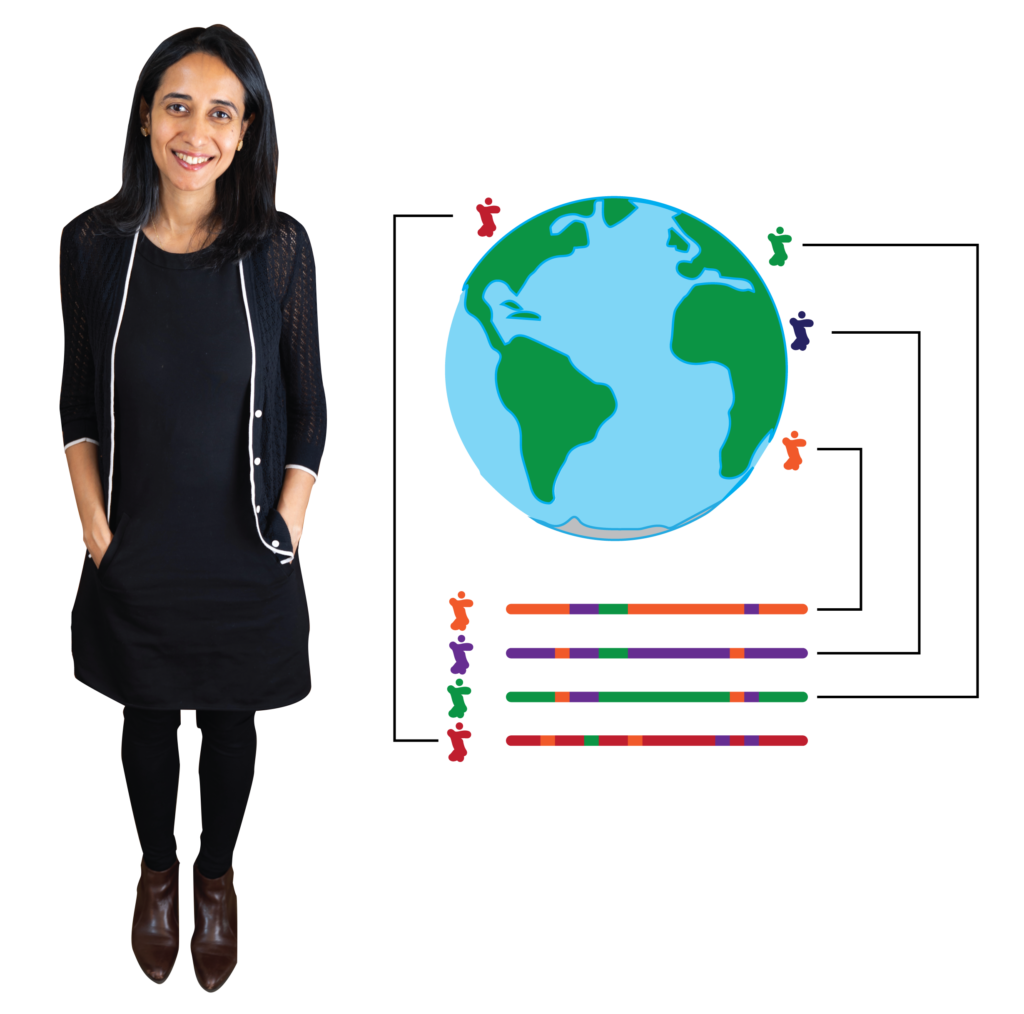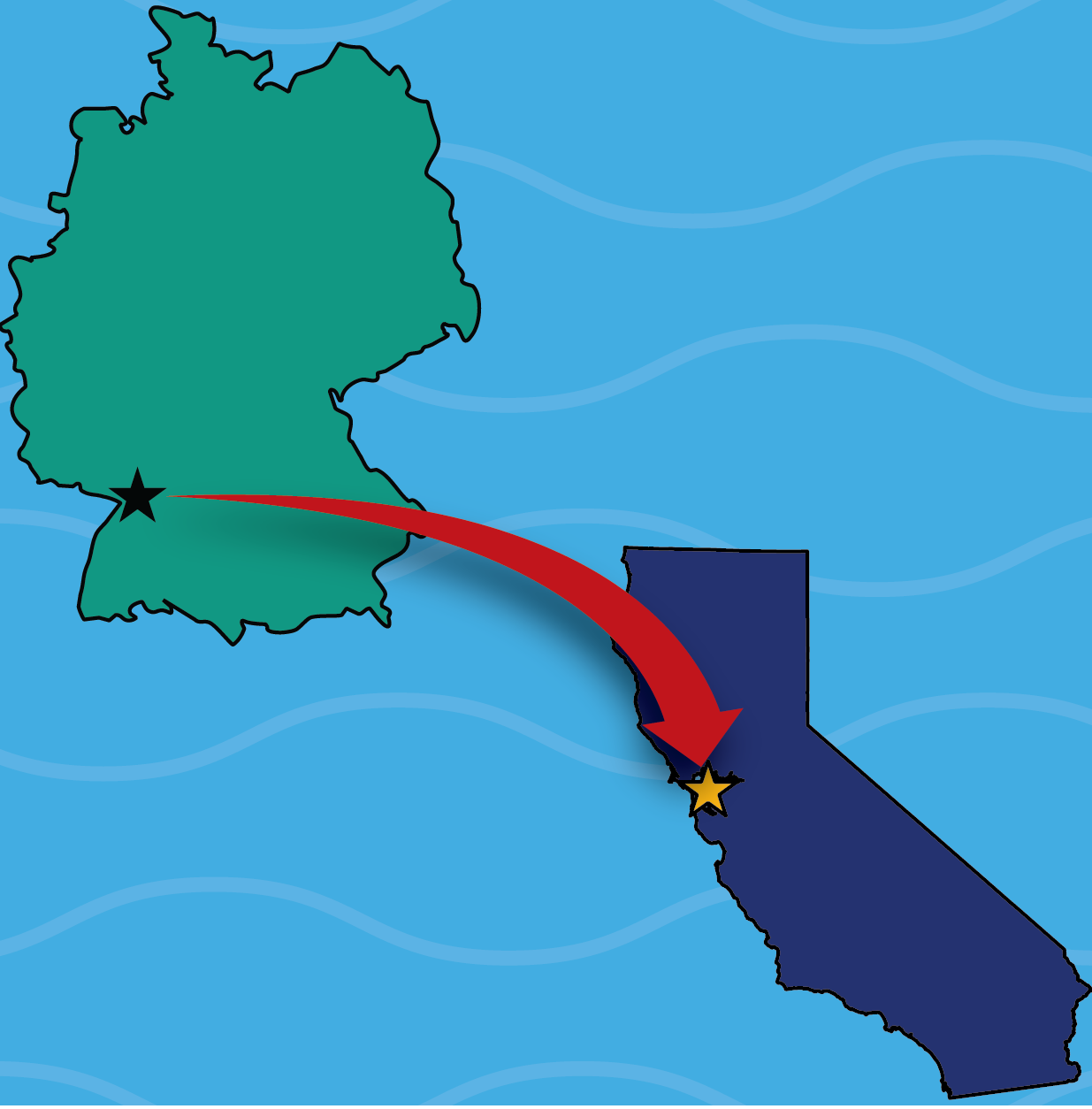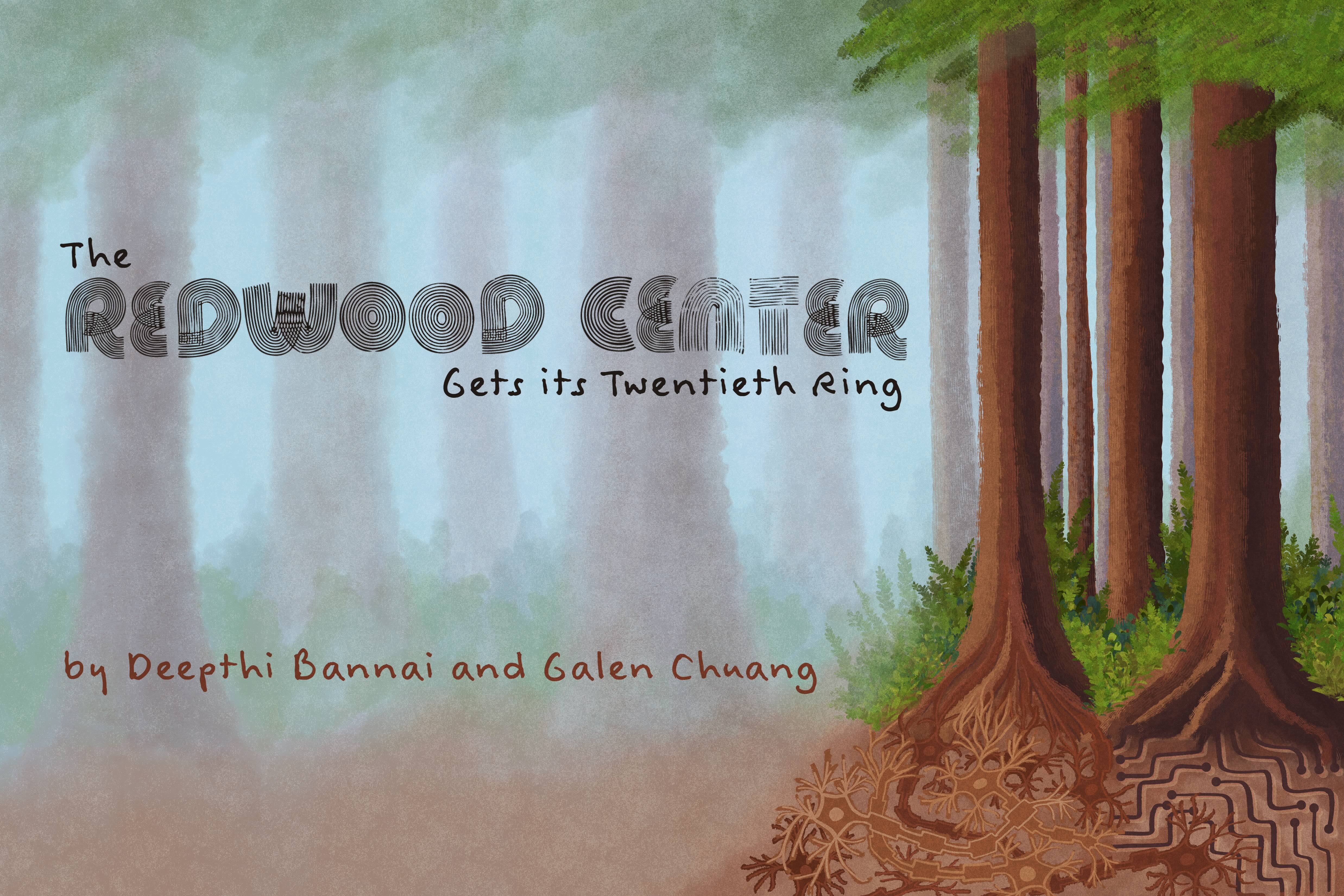Faculty Profile: Priya Moorjani
By Stacy Li
May 10, 2020

Population genetics highlights shared histories between different groups of humans by identifying ancestral features present in their genomes. Image Design: Johan Jaenisch, Photo Credit: Kazuomori Lewis
Priya Moorjani’s work takes her through millions of years of history, captured in samples of DNA from humankind’s past and present. Moorjani was originally trained as a computer engineer, and now her research uses computational techniques to tease apart evolutionary patterns hidden in the human genome, yielding insights into population ancestry and disease. “One pattern that keeps emerging is that populations have been mixing throughout human history,” notes Moorjani. “What unites us as humans seems to be more a history of mixing, rather than being separated.” According to Moorjani, our genome can inform us about our evolutionary past and how it continues to affect us today. Analysis of subtle variances in the genomes of different groups can shed light on everything from population migration to climate adaptation, summarizing human history through the lens of genetic data. “It's this really powerful information that's just buried in our cells, and it can tell us about not only the journey of our lifetime, but also the journey of our ancestors,” says Moorjani. At UC Berkeley, Moorjani hopes to foster an environment where researchers of all backgrounds can thrive, citing strong support from her own mentors as the key to her success. She specifically credits her sister, a neuroscientist, as her inspiration to pursue a career in academia. “Over my career, I have not felt that as a woman, I have been discouraged in any way. I want my mentees to also feel empowered to do whatever they want to do.”
—STACY LI
This article is part of the Spring 2020 issue.





